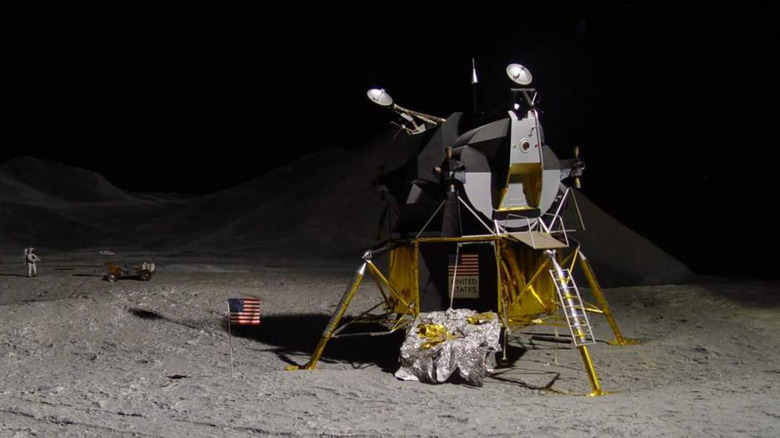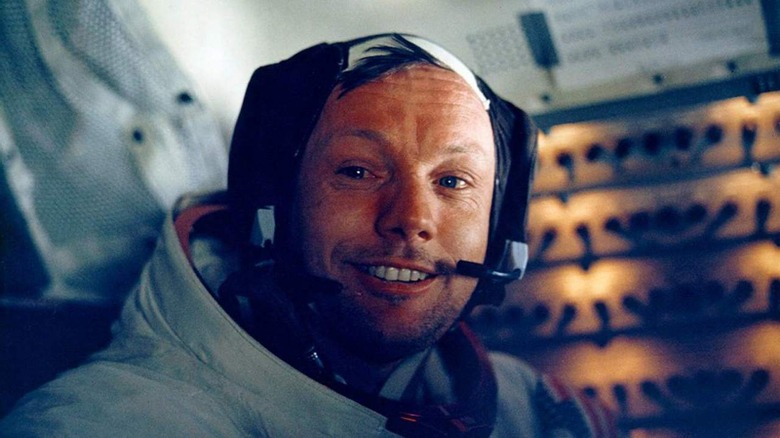The One Thing Everyone Gets Wrong About The Moon Landing
Astronaut Neil Armstrong set foot on the Moon in 1969, with Eugene Cernan and Harrison Schmitt being the last Apollo astronauts to leave its surface two years later, as noted by History. If you stop to really think about it, what NASA accomplished with technology from that era is mind-boggling. For starters, the Apollo 11 rocket had a computer processor that ran at 0.043 MHz — the average iPhone is at least 100,000 more powerful, according to Business Standard.
As a mission right on the very edge of what was technologically possible, you can imagine it was a momentous occasion when Neil Armstrong stepped off the Eagle lunar lander and the eyes and ears of the world were fixed on his first step and his first words from the Moon's surface.
A lingering controversy about the landing is exactly what Neil Armstrong said when he uttered the first words spoken by a human standing on the Moon. Most people familiar with the transmission believe that Armstrong misspoke. He is alleged to have said, "That's one small step for man, one giant leap for Mankind."
If you are a member of the grammar police, you will quickly notice that there is an "a" missing between "for" and "man." Armstrong himself has always insisted he in fact said the missing word but admitted that he couldn't hear it himself when he heard a recording of the transmission played back to him after the mission.
The mystery of the missing word was solved back in 2006
With so many things that could go wrong and plenty to keep his mind occupied, Neil Armstrong says he hadn't actually put a lot of direct energy and thought into what he was going to say when first stepped off the Eagle and on to the Sea of Tranquility.
"I thought about it after landing," Armstrong told the Associated Press, via The Daily Universe, of those famous words. "And because we had a lot of other things to do, it was not something that I really concentrated on, but just something that was kind of passing around subliminally or in the background." The fact is, however, Armstrong did indeed say what he had intended to say and had thought he had said.
In 2006, Australian computer programmer Peter Shann Ford downloaded an audio recording of Armstrong's historic proclamation from a NASA webpage intent on finding out the truth. After all, the transmission technology had relatively low bandwidth and bits of the recording could easily have been a little garbled.
The software he used produced a graphical representation of the words Armstrong spoke and while the word "a" could not be heard by the human ear it was represented graphically, revealing that Armstrong had indeed said it, the Washington Post notes. Of Ford's finding, Armstrong said "I ... find his conclusion persuasive," adding, "'Persuasive' is the appropriate word."

